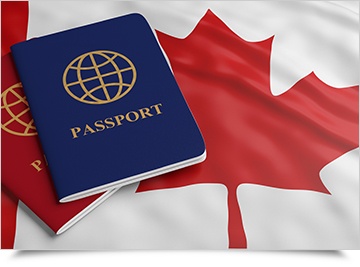
Temporary residence
Canada allows a temporary residency through:
Tourism: A foreigner who intends to visit the country for recreational purposes for less than six months, needs the authorization to enter Canada (visitor visa or electronic travel authorization), if not a citizen/resident of a visa-free country.
Super Visa: This type of visa allows parents and grandparents of permanent residents or Canadian citizens to stay in Canada for up to 2 years, without having to extend their visitor status.
Study: A foreigner who intends to study in Canada, for more than six months, must apply for a study permit. This type of visa authorizes the foreign to work up to 20h / week during the study period in Canada. Also, the student's spouse may apply for a work permit.
Work: In general, a foreigner who intends to work in Canada needs the employer to obtain a positive or neutral labor market impact assessment (EIMT / LMIA) for their employment. That's because this employer must prove that there was an attempt to recruit a Canadian citizen or permanent resident, without success. Some professions are excepted from ETA / LMIA or benefit from accelerated treatment.
The Canada Vacation and Work program does not require the EIMT / LMIA.

Permanent residence
If the foreigner intends to settle in Canada to live permanently, there is the possibility of direct immigration. Qualified foreigner selection processes target professionals to meet the demand of the Canadian labor market. The Express Entry system and the "ARRIMA" portal for Québec are the vehicles most used for this type of application. However, there are other ways to achieve permanent residence through foreign investment.

Canadian Citizenship
